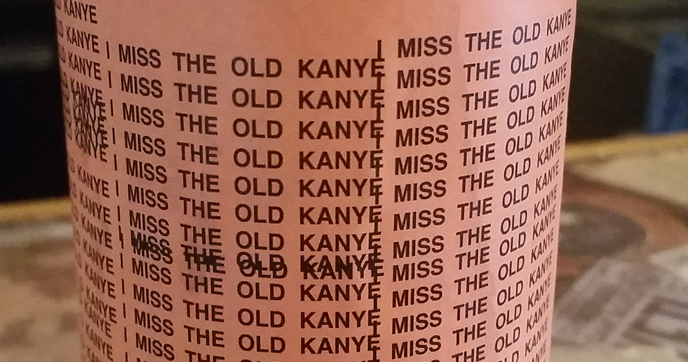Kanye West. For the past 15 years he has been a subject of criticism, controversy, success, and acclaim. There’s a reason he has stayed relevant for so long. There’s also reason he became relevant in the first place and this is not the same reason he’s currently relevant. While I still consider myself a fan of his, I often revisit his first major album: The College Dropout. Despite being a fan of current Kanye, I often find myself missing the old Kanye.
I know I’m not the only one who feels this way. In fact, Kanye raps about the “I miss the old Kanye” sentiment in his song Love Kanye. This begs the question of why people tend to gravitate toward the old Kanye and shun the new Kanye. Of course married Kim Kardashian and tweeted about his respect for President Trump. Regardless of your opinion on these two individuals, they are definitely some of the more controversial public figures this decade.
I love the fact that Kanye is so outspoken and headstrong, but I do miss the commentary in his old music. This commentary really doesn’t mesh with the messages he puts out day.
Listening to The College Dropout, you hear a clear commentary on the education system in the United States. This is before the economic decline of 2008, but it clearly relates to Kanye’s life, his experiences in college, and his family’s expectations. Intertwined into this commentary you’ll hear stories about his battles for success, race in America, and censorship around specific topics (namely religion, as heard in Jesus Walks). This is why Kanye’s debut is held to such a high regard and people constantly reminisce over the “old Kanye.” He set the bar very high for himself with his debut and it’s been a struggle to match that success.
Time progresses and Kanye becomes a bigger name in rap and a more prominent public figure. His fame and wealth become more intertwined into his raps, as should be expected from his first album. Kanye is open about his pursuit of wealth and his insecurities over his image, but the narratives from his first album are replaced with references to jewels and gold diggers. This isn’t just true of his second album. His albums release in the later part of the 00’s maintain some of the authenticity found in his first album, but it’s paralleled by experiences more relatable to celebrities than to his friends and family from Chicago.

This is where the disconnect begins. Kanye, whose raps once discussed his challenges and opinions, begin to become a product of his fame. He starts to focus more on Hollywood than on everyday life.
Don’t get me wrong, people are fascinated by fame. When he covered the dark side of his fame on My Beautiful Dark Twisted Fantasy people were captivated. The album was delved into his life during a challenging time and his audience could relate the these raw, human emotions. While the themes of this album were both interesting and engaging, I can’t ignore the experimental nature of the production on this album. It sparked interest and earned the album critical praise.
We’ve yet to see this level of authenticity from Kanye again. Rather than tying his music to his authentic life experiences, the emphasis is placed on being experimental. That component worked on My Beautiful Dark Twisted Fantasy, but has received mixed reactions on his subsequent work.
Again, I admit to being a fan of his. I’m still interested and I’m still going to give his new projects a chance. But I don’t have the same level of excitement. When I listen to one of his new songs for the first time, I can’t be sure if I will understand the message behind the song or be confused by another one of his experiments. This is what I miss in the old Kanye: authenticity. Many newer rappers have it and many of the older rappers have lost it. I hoped Kanye would be able to top his original work, but I don’t think he has yet. A part of me still believes he’s capable of doing this, but as time progresses I continue to lose faith in Kayne and shift my interest to other rapper.






You must be logged in to post a comment.